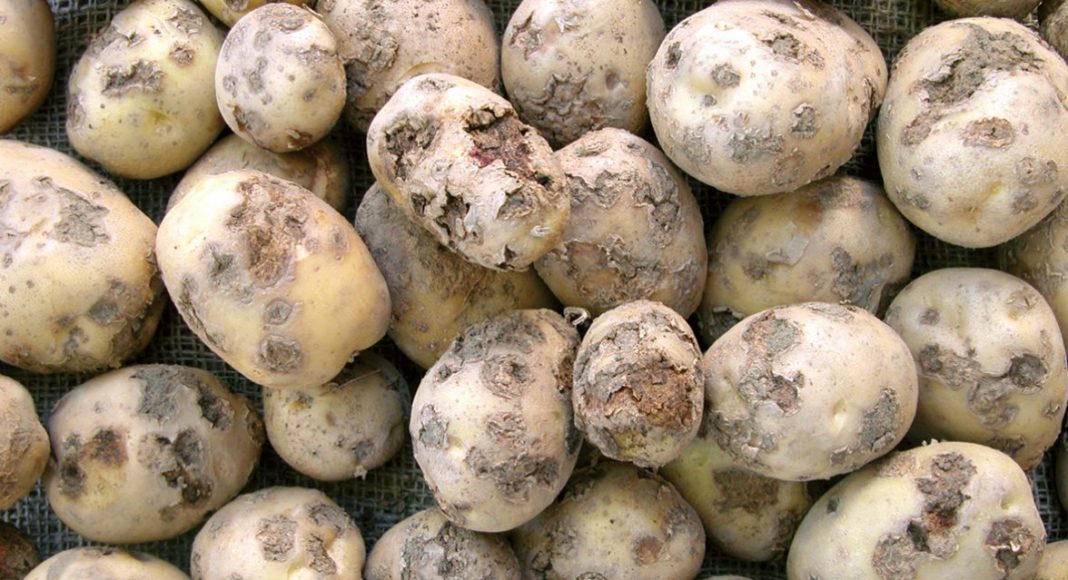Common scab is the most important soil-borne disease of potatoes in Ontario and across Canada. Scab does not reduce yield, but the corky, pitted lesions that develop on infected tubers render the potatoes unmarketable.
The management practices recommended to control common scab have proven to be inconsistent: they reduce the incidence in some fields but not in others. Recent research has suggested that there are different species of the scab pathogen that react differently to recommended management practices.
It is thought that Streptomyces scabiei is the most common scab bacterium in Ontario, but there may be other species. Accurate identification of the species should make it possible to “farm by field,” to adjust management practices to the bacteria present in the soil.
Objectives of the 2018 – 2019 Project
1.To identify the species of the common scab bacterium present in Ontario potato fields. In 2018, molecular technology such as PCR or polymerase chain reaction methods were developed by A & L laboratories to fingerprint the species of bacteria that cause common scab in Ontario potato fields.
2. To determine if there is a correlation between the species of common scab bacteria found in a field and the results of standard soil tests. This objective was completed in 2018.
3.To test management practices based on the species of common scab bacteria in fields, a ‘field by field’ approach (2019).
Soil Sampling for Molecular Technology
Fifty soil samples were collected from potato fields in different areas of Ontario. Molecular technology identified four species of bacteria that cause common scab. This technology detected the presence of the toxin thaxtomin, which is produced only by pathogenic species of Streptomyces.
Soil Sampling for Nutrient Content Analysis
Soil tests showed that there was a correlation between the common scab bacteria present and nutrient levels in the field.
Results
PCR testing found 48 fields infested with common scab and two uninfested fields, one near Alliston and the other near Sudbury. Most of the infested fields had multiple species. Streptomyces stelliscabiei was the most common species followed by S. scabiei, S. acidiscabies and S.turgidiscabies.
The fact that S. stelliscabiei is the predominant species in Ontario and not S. scabiei as expected, is a major breakthrough result. It could lead to development of practices that specifically target this species. Two fields with high levels of S. stelliscabiei and no other species had about 100 per cent scab incidence in 2018.
The levels of micro- and macro-nutrients varied enormously. Soil pH, percent base saturation of hydrogen and the K/Mg ratio were found to be the most important factors predicting levels of common scab in Ontario potato fields. These findings will help to develop a strategy to reduce the incidence of common scab in Ontario.
This is a two-year project and will be completed in 2019. In 2019, biopesticides will be evaluated to control S. stelliscabiei.
This project is funded in part through the Canadian Agricultural Partnership (the Partnership), a federal-provincial-territorial initiative. The Agricultural Adaptation Council assists in the delivery of the Partnership in Ontario.











